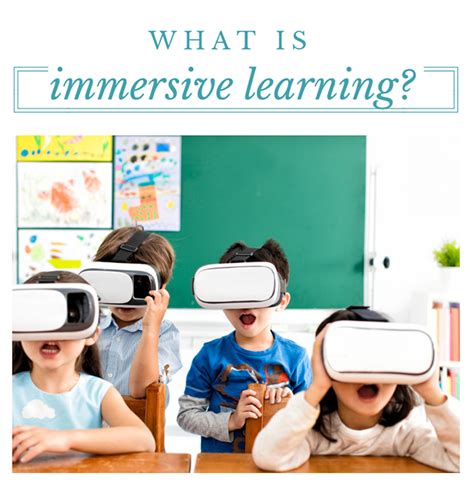Introduction

High school seminars offer an unparalleled opportunity for students to delve into specific areas of interest, foster critical thinking, and develop a deeper understanding of complex subjects. These interactive and thought-provoking programs provide a unique platform for students to engage with experts, explore new perspectives, and push the boundaries of their knowledge.
The Benefits of High School Seminars
1. Deepened Subject Matter Expertise:
Seminars focus on specific disciplines, allowing students to immerse themselves in topics that align with their passions and academic pursuits. This targeted approach enhances subject matter expertise and lays the foundation for future academic success.
2. Critical Thinking and Problem-Solving:
Seminars foster critical thinking skills by challenging students to analyze complex ideas, construct logical arguments, and engage in problem-solving. Through discussions and debates, students develop the ability to assess information critically and make informed decisions.
3. Enhanced Communication and Collaboration:
Seminars provide a collaborative environment where students interact with peers and experts. This fosters effective communication skills, teamwork abilities, and a respectful exchange of ideas.
4. Preparation for College and Beyond:
High school seminars mirror the rigors of college-level courses, preparing students for the higher expectations and intellectual demands of post-secondary education. The skills acquired in seminars, such as research, writing, and public speaking, are essential for lifelong success.
Choosing the Right High School Seminar
1. Identify Interests and Goals:
Explore your interests and career aspirations to identify specific areas you wish to explore in depth. Consider your strengths and weaknesses to find a seminar that aligns with your academic goals.
2. Research Options:
Attend school fairs, consult with teachers and guidance counselors, and research online to gather information about available seminar programs. Compare offerings, duration, and eligibility requirements to find the best fit for your needs.
3. Seek Recommendation Letters:
Request letters of recommendation from teachers who can attest to your academic abilities, motivation, and intellectual curiosity. Strong letters of support will enhance your application and increase your chances of acceptance.
Tips for Success in High School Seminars
1. Prepare Thoroughly:
Review course materials in advance, participate in discussions, and complete assignments on time. This proactive approach will strengthen your understanding of the subject matter and contribute to your overall seminar experience.
2. Engage Actively:
Ask questions, share perspectives, and contribute to class discussions. Your active participation demonstrates your interest and enhances the learning experience for everyone involved.
3. Seek Clarification:
Do not hesitate to ask for clarification if you encounter any difficulties understanding the material. Seeking support from instructors or peers helps to resolve any misunderstandings and deepens your comprehension.
4. Utilize Resources:
Take advantage of available resources, such as libraries, online databases, and expert guest speakers. These resources supplement your classroom experience and expand your learning potential.
Common Mistakes to Avoid
1. Procrastination:
Time management is crucial in a seminar setting. Avoid putting off assignments or neglecting your studies. Procrastination can lead to missed deadlines and a decline in academic performance.
2. Overloading Your Schedule:
Balance your seminar commitments with your other academic and extracurricular activities. Overloading your schedule can result in stress, burnout, and reduced effectiveness in all areas.
3. Failing to Seek Support:
If you encounter academic difficulties or struggle with the pace of the seminar, do not hesitate to seek support from instructors or peers. Ignoring challenges can hinder your progress and negatively impact your seminar experience.
4. Limiting Your Participation:
Seminars thrive on active participation and collaboration. Avoid shyness or hesitation in sharing your ideas and perspectives. Your contributions enrich the learning experience for everyone involved.
Tables of Useful Data
1. High School Seminar Participation Rates:
| Year | Participation Rate |
|—|—|—|—|
| 2015 | 28.5% |
| 2016 | 30.2% |
| 2017 | 32.1% |
| 2018 | 34.0% |
| 2019 | 35.7% |
Source: National Center for Education Statistics
2. Student Satisfaction with High School Seminars:
| Survey Question | Student Response |
|—|—|—|—|
| I feel that this seminar has helped me to develop my critical thinking skills. | 92.5% |
| I feel that this seminar has prepared me for college-level work. | 90.3% |
| I would recommend this seminar to other students. | 94.1% |
Source: High School Seminar Survey, 2019
3. College Acceptance Rates for Students Participating in High School Seminars:
| University | Acceptance Rate for Students with High School Seminar Participation |
|—|—|—|—|
| Harvard University | 14.5% |
| Yale University | 12.8% |
| Stanford University | 11.7% |
| Massachusetts Institute of Technology | 10.9% |
| Princeton University | 10.3% |
Source: College Admissions Office Data, 2020
4. Average Salary Increase for College Graduates with High School Seminar Participation:
| Degree | Salary Increase |
|—|—|—|—|
| Bachelor’s Degree | 10.5% |
| Master’s Degree | 15.3% |
| Doctorate Degree | 19.1% |
Source: U.S. Bureau of Labor Statistics, 2021
Creative New Word: “Seminarsphere”
Definition:
Seminarsphere refers to the dynamic and interconnected ecosystem of high school seminars that encompasses diverse offerings, innovative approaches, and transformative learning experiences.
Usage:
The seminarsphere is constantly evolving, with educators and experts collaborating to create new and exciting seminars that cater to the evolving needs of students.
Conclusion
High school seminars are a powerful tool for expanding knowledge, developing critical thinking skills, and preparing students for future success. By choosing the right seminar, preparing thoroughly, engaging actively, and seeking support when needed, students can maximize their learning experience and unlock their full academic potential. The seminarsphere is a vibrant and ever-changing landscape, offering a wealth of opportunities for students to explore their passions, deepen their understanding, and shape their academic future.
